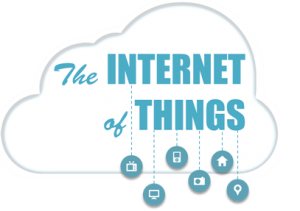This article also appeared on the blog of the National Cyber Security Alliance.
A few weeks ago, I attended a conference about privacy considerations related to big data and recapped the more significant takeaways from the forum. Among the concepts that I found most interesting was a reference to “cumulative disadvantage.” Social researchers have long written about cumulative disadvantage as a topic related to life-course theory. In essence, the idea goes that disadvantages can stack up from one’s birth throughout life, ultimately explaining why the playing field may never be quite level for some underserved segments of society.
Within the data and technology realm, cumulative disadvantage is fairly similar but can hit much closer to home for each us who uses social media and other technology regularly. Amazon, for instance, represents a simple example. Each time you utilize Amazon as a customer, you relay a bit of information to the service, which it uses to refine its profile of you—what you search for, what you purchase, etc. Based on this profile of you that Amazon has created, the service can recommend additional products to you that you might like to purchase.
On the surface, these recommendations are useful: you receive solid recommendations from Amazon and Amazon increases the likelihood that you’ll encounter more products that you may potentially purchase. But cumulative disadvantage thinking would make us examine, especially for those of us who might rely too heavily on these recommendations, the possibility that we’re missing out on great products that Amazon never recommends to us. Perhaps you have never searched for history-related books before, so there’s really no way for Amazon to recognize that you’d be excited to get your hands on a new book that details the life of a former U.S. president or a technology pioneer. The question becomes: Are we actually missing out on products that we’d really like or that would be extremely beneficial to us because the service just never recommends them?
With Amazon in mind, the situation seems rather benign; but enter the Internet of Things—a wholly interconnected array of everyday tools and appliances—and cumulative disadvantage (as well as the masses of consumer data collected by devices and services) starts to matter quite a bit.
The appeal of the Internet of Things revolves around the idea that digitally interconnected “things”—from refrigerators to thermostats to cars and beyond—will make our lives easier by recognizing patterns in our behavior or conditions that need resolution, with the devices then making recommendations that provide us a net-benefit. For instance, your connected refrigerator recognizes that you’ve run out of milk. The appliance can send a notification to your smartphone to let you know that you need to make a trip to the grocery store. Even better: the appliance can compile and send you a full grocery list as well as a notification of the local grocery store that currently has the largest ratio of these items on sale. This seems like a benefit for the owner of the refrigerator. But privacy advocates, regulators and others raise worthwhile concerns about the growing Internet of Things: What happens when the data these devices capture about us misrepresents us or include errors that skew our profiles?
An erroneous profile of you maintained by your refrigerator seems harmless enough. However, consider if your medicine cabinet is a connected device that has the ability to send you reminders when it’s time to refill a prescription. It would be bad enough if the device inadvertently missed sending you a reminder; it could be even worse if the device reminded you to refill the wrong prescription altogether. The implications associated with erroneous user profile information have the potential to range from annoying to really serious in nature.
This is among the reasons why Julie Brill, commissioner of the Federal Trade Commission has called for businesses that deal in data management to support an effort to allow consumers greater access to data collected about them—an initiative that she has coined Reclaim Your Name.
Brill seeks to establish and solidify this framework as an operating standard for any organization that collects and manages consumer-generated data. One area that Brill has identified as crucial is management of an individual’s credit information. As companies and financial institutions increasingly make decisions about a person based on a credit score, it’s important that this data be accurate. But thousands of Americans struggle regularly to correct erroneous credit information that damages their profile and has the potential to impact whether they can obtain loans or other financial assistance.
Reclaim Your Name and other initiatives would require organizations to make the data that they collect readily accessible to individuals and, ideally, would also offer mechanisms to have information easily corrected should it be found erroneous.
Considering the pace at which technology is moving—wearable smart devices, for instance, will begin to proliferate throughout the consumer marketplace within the next three months—the Internet of Things is becoming less of a far-off concept and more of a daily reality for many Americans. The companies that lead the revolution to equip consumers with data-collecting smart devices will likely have a lot of questions to answer in the near-term about exactly what types of data are collected and how the companies are using and/or sharing this data to craft our profiles. We, after all, wouldn’t want to be placed at a disadvantage by the very things that are supposed to make our lives easier.
Image: VirtualCommand.com

